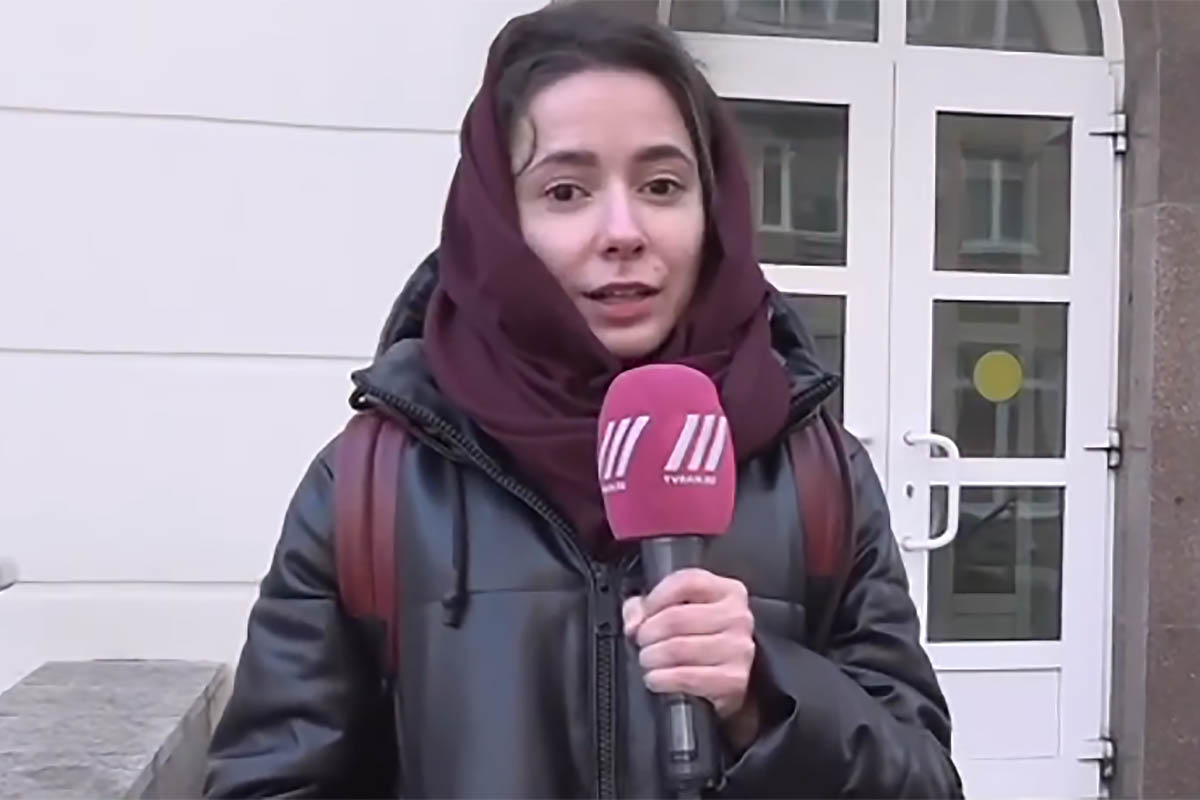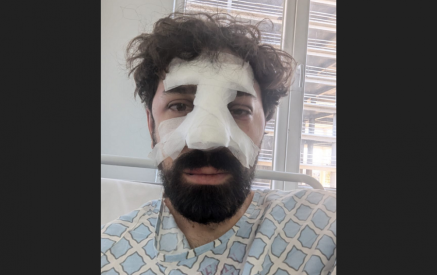Georgian authorities should allow Russian journalists to enter the country and work safely, the Committee to Protect Journalists said Tuesday.
On Tuesday, March 14, border guards at the airport in Tbilisi, the capital, held Aleksandra Shvedchenko, a reporter with independent broadcaster Dozhd TV, for about 30 minutes before denying her entry to the country, according to her outlet and media reports.
In recent months, authorities have similarly denied entry to at least three other journalists, according to media reports and journalists who spoke to CPJ. Since Russia’s full-scale invasion of Ukraine in February 2022, scores of Russian journalists have fled the country, with many seeking refuge in Georgia.
“Georgia has an opportunity to host hard-hitting independent Russian journalists no longer able to work in their home country. Authorities should embrace this responsibility instead of shirking it,” said Carlos Martinez de la Serna, CPJ’s program director, in New York. “Dozhd TV journalist Aleksandra Shvedchenko and all other Russian journalists seeking a safe place to do their reporting should be allowed to work freely in Georgia.”
Read also
Authorities gave Shvedchenko a document stating that she was not allowed to enter the country under “other cases envisaged by Georgian legislation,” and put her back on a plane to Riga, Latvia, according to her outlet and Dozhd TV chief editor Tikhon Dzyadko, who spoke to CPJ via messaging app. She had been living in Tbilisi for a year, her outlet said.
In November 2022, authorities denied entry to Yekaterina Arenina, a journalist with investigative outlet Proekt, according to media reports and Arenina, who spoke to CPJ via messaging app. A border guard who gave her the same written refusal as Shvedchenko told her that he could not explain anything verbally, and that their conversation was recorded.
In December 2022, authorities at the Tbilisi airport gave a similar document to Aleksei Ponomarev, a podcast editor with independent news website Holod, and made him return to Riga, where he was flying from, according to his outlet and media reports.
Ponomarev told CPJ that he had lived in Georgia for almost two years at the time of the incident, and that he was able to return to the country two weeks later but was unsure if he could leave and reenter in the future.
On February 19, 2023, Tbilisi airport authorities told Filipp Dzyadko, a Russian writer and journalist, that he could not enter the country because their computer was frozen, and told him they “could not comment on anything,” according to news reports and the journalist, who spoke to CPJ in a phone interview. He said he stayed in the airport until the following day, when he took a flight to Armenia.
Dzyadko had lived in Georgia since March 2022, he said. He told CPJ that he believed the refusal was linked to his former journalistic activities as a Dozhd TV journalist, the chief editor of the now-shuttered newspaper Bolchoy Gorod, and an “anti-war” novel he published in April 2022. He said it was also possibly related to his brother Tikhon’s work as chief editor of Dozhd TV.
CPJ is also investigating Georgian immigration authorities’ November 2022 denial of Gala Latygovskaya, who works in an administrative capacity for the independent news website Mediazona. Latygovskaya told CPJ by phone that she was traveling to the country for her work when authorities denied her entry without giving her any explanation or documentation.
In September 2022, Grigol Liluashvili, the head of the Georgian State Security Service, stated that an “uncontrolled influx” of Russian opposition figures would be “just as dangerous” as Russian government supporters entering the country as tourists.
Previously, in March 2022, Georgian authorities denied entry to Dozhd TV journalist Mikhail Fishman and to Mediazona journalist David Frenkel. In June 2022, Russian blogger Insa Lander was stranded for more than two weeks at the Georgian border before being eventually allowed in.
CPJ emailed the Georgian Interior Ministry police and the State Security Service for comment, but did not receive any reply.
Committee to Protect Journalists

























































